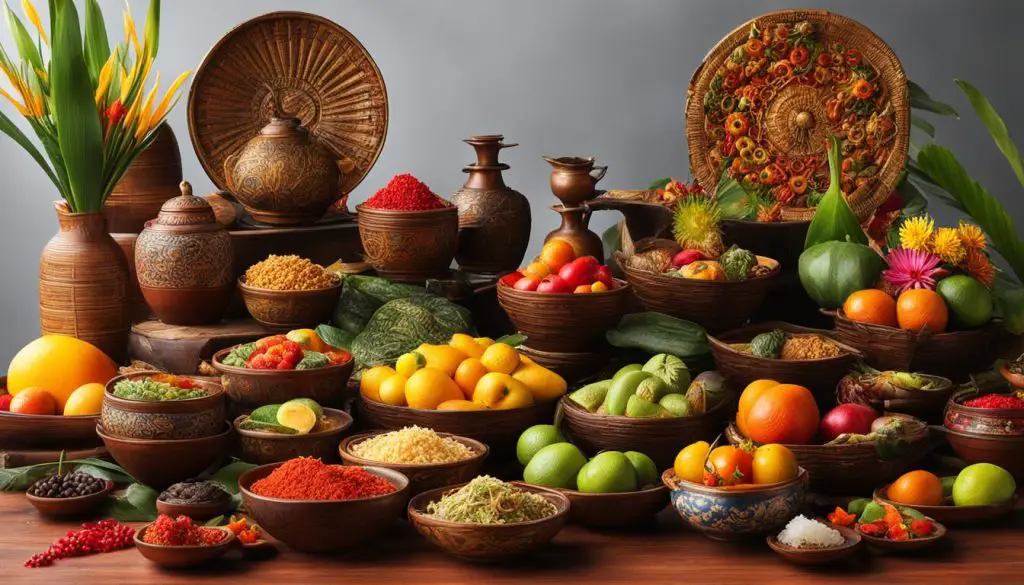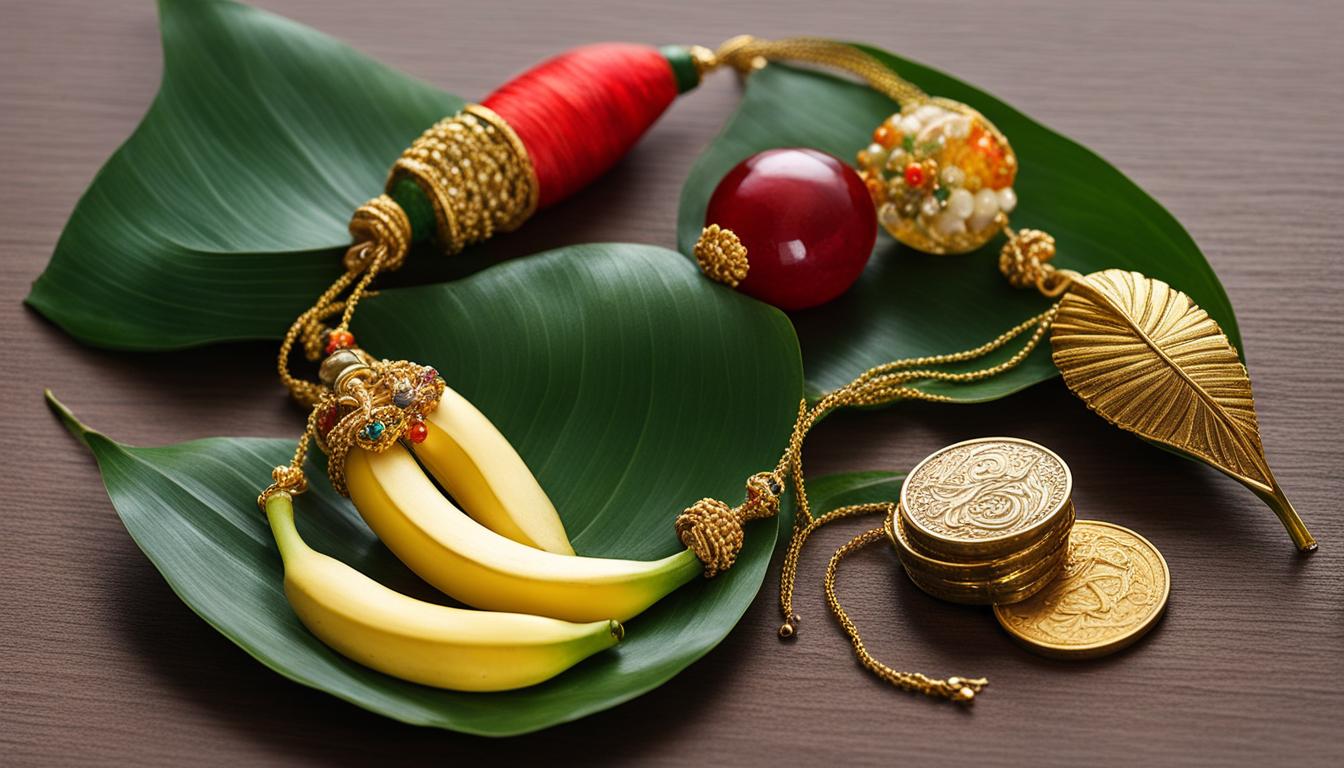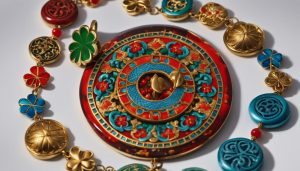The Philippines has a rich cultural heritage and is known for its diverse beliefs and superstitions surrounding good luck. The country’s history of colonization and the influence of different religions have shaped Filipino customs and traditions. Superstitions play a significant role in the lives of Filipinos, with many adhering to various practices and beliefs to attract good fortune. From avoiding certain numbers on staircases to turning plates when someone leaves during a meal, Filipinos have unique ways of seeking good luck.
Contents
Key Takeaways:
- Good luck is an important aspect of Filipino culture, with a variety of beliefs and superstitions.
- Filipinos have unique practices such as avoiding certain numbers and turning plates for good luck.
- The influence of colonization and different religions has shaped Filipino customs and traditions surrounding good luck.
- Understanding the cultural significance of luck in the Philippines provides insights into Filipino society and values.
- Superstitions and rituals surrounding luck reflect the importance placed on it in Filipino culture.
Traditional Lucky Symbols and Superstitions in the Philippines
Filipinos have a rich cultural heritage with a deep belief in luck and superstitions. These traditional symbols and beliefs have been passed down through generations, reflecting the Filipino way of life. From the number of steps in a staircase to customs during dining and wakes, Filipinos have unique practices to attract good luck.
One popular superstition in the Philippines is the belief that the number of steps in a staircase should not be divisible by three. It is believed that having a number of steps divisible by three brings bad luck. This belief showcases the importance of numerology in Filipino culture, where numbers hold significant meaning and influence.
Another interesting superstition is the custom of turning plates when someone leaves the dining table. Filipinos believe that turning the plate ensures the safe travels of the person leaving. It is a way of protecting them from accidents or harm during their journey. This tradition highlights the strong sense of community and concern for others that is deeply ingrained in Filipino culture.
Superstitions surrounding wakes are also prevalent in Filipino culture. One such belief is the practice of going elsewhere after attending a wake before heading home. This custom is followed to shake off the spirit of the deceased and to prevent them from following the visitors home. It is believed that the spirit will be confused and unable to find its way back, ensuring the safety and well-being of the visitors.
Traditional Lucky Symbols in the Philippines:
| Lucky Symbol | Meaning |
|---|---|
| Horseshoe | Brings good luck and protects against evil spirits. |
| Coin | Represents wealth, prosperity, and abundance. |
| Bamboo | Signifies resilience and strength. |
| Fish | Symbolizes abundance and fertility. |
| Turtle | Represents longevity and wisdom. |
| Elephant | Brings good luck, wisdom, and protection. |
Filipino culture is deeply rooted in these traditional lucky symbols and superstitions. They are not only seen as a means to attract good luck but also as a way to connect with the spiritual realm and maintain harmony and balance in life. Understanding these beliefs provides valuable insights into the rich cultural tapestry of the Philippines and the significance of luck in Filipino society.
Filipino Superstitions and Beliefs
The cultural fabric of the Philippines is interwoven with various superstitions and beliefs that revolve around good fortune. These deeply ingrained practices provide a fascinating glimpse into the Filipino way of life and their pursuit of luck. Whether it’s uttering “Tao po!” when knocking on someone’s door or avoiding siblings marrying in the same year, these rituals and beliefs shape the daily lives of Filipinos.
Popular Lucky Rituals
One of the most prevalent beliefs in the Philippines is the practice of serving pancit, or noodles, during special occasions and birthdays. It is believed that the long strands of noodles symbolize longevity and bring good luck. Additionally, Filipinos often engage in the ritual of “pagpag” after attending a wake. This involves going elsewhere before heading home to ward off any lingering spirits. These customs are deeply embedded in Filipino culture and highlight the importance placed on attracting good fortune.
“Tao po!” – A common Filipino phrase used when knocking on someone’s door, reassuring the occupants that you are a human and not a supernatural being.
Folk Beliefs about Good Fortune

The Filipino belief system also includes a range of folk beliefs about good fortune. For instance, it is considered unlucky to sweep the floor at night as it is believed to sweep away good luck. Similarly, breaking a mirror is thought to bring seven years of bad luck. These superstitions, although varying in origin and specifics, reflect the deeply rooted desire for positive outcomes and a sense of protection against negative forces in Filipino culture.
The Influence of Culture and Faith
The Filipino superstitions and beliefs about good fortune are shaped by the country’s rich cultural heritage and the influence of various religions, such as Christianity and traditional indigenous practices. The strong belief in luck is intertwined with a sense of community and spirituality, showcasing the collective mindset and deep-rooted values of Filipinos. Understanding these cultural intricacies provides meaningful insights into the Filipino way of life and their unwavering pursuit of good fortune.
Table: Popular Filipino Superstitions and Beliefs
| Superstition/Belief | Meaning/Explanation |
|---|---|
| Serving pancit at celebrations | Symbolizes longevity and brings good luck |
| Avoiding sweeping the floor at night | Believed to sweep away good luck |
| Avoiding siblings marrying in the same year | Thought to divide the luck between the two marriages |
| Saying “Tao po!” when knocking on someone’s door | Reassures the occupants that you are not a supernatural being |
| Breaking a mirror | Believed to bring seven years of bad luck |
Filipino Attitudes and Values
In understanding the cultural significance of luck in the Philippines, it is essential to explore the attitudes and values that shape the Filipino perspective. Filipino values and attitudes are deeply rooted in the sense of community and friendliness that characterizes the Philippines. The culture emphasizes a strong sense of unity and support, which contributes to a welcoming and inclusive attitude towards others.
The value placed on community extends to the importance of family and respect for others. Filipino society values hard work and perseverance, which are seen as essential ingredients for success. These attitudes shape the way Filipinos perceive and pursue good luck in their lives.
Crab Mentality
“Crab mentality” is a belief that also exists within Filipino culture. It refers to the tendency for some individuals to attempt to bring others down in order to elevate themselves. This mindset can manifest in various ways, such as undermining the success of others or spreading negativity. While not representative of all Filipinos, it is a phenomenon that highlights the complex interplay of attitudes and values in the pursuit of luck and success.
Overall, Filipino attitudes and values play a significant role in shaping the belief and pursuit of good luck. The emphasis on community, hard work, and respect for others all contribute to the cultural significance of luck in the Philippines. Understanding these attitudes and values provides valuable insights into the Filipino way of life and their approach to attracting good fortune.

Conclusion
The cultural significance of luck in the Philippines is deeply intertwined with Filipino culture and superstitions. From traditional lucky symbols to unique rituals and practices, Filipinos have a strong belief in attracting good luck. These beliefs and attitudes shape the way individuals and society perceive and pursue good fortune.
Understanding the role of luck in Filipino culture provides valuable insights into the Filipino way of life. It reflects the rich cultural heritage and diverse beliefs that have been shaped by the country’s history and influences from different religions. Superstitions and customs surrounding good luck are deeply ingrained in the lives of Filipinos, showcasing their unique cultural identity.
Exploring the cultural significance of luck in the Philippines allows us to appreciate the importance of community and unity in Filipino society. Values of hard work, respect for others, and the emphasis on family and community contribute to the pursuit of good luck. It is through these values and attitudes that Filipinos navigate their lives, seeking fortune and prosperity.
Unlocking the essence of good luck in the Philippines
By delving into the world of Filipino superstitions and beliefs, we gain a better understanding of the Filipino perspective on luck. Whether it’s saying “Tao po!” before entering someone’s home or ensuring that the number of steps in a staircase is not divisible by three, these customs and rituals reflect the cultural significance of luck in the Philippines.
Embracing Filipino culture and its traditional values allows us to appreciate the importance of luck in our lives. It reminds us to embrace unity and support within our communities, to work hard, and to respect and cherish our families. So, next time you encounter a Filipino superstition or belief, remember the cultural significance of luck in the Philippines and the unique perspectives it offers.
FAQ
What are some traditional lucky symbols in the Philippines?
Some traditional lucky symbols in the Philippines include the belief that the number of steps in a staircase should not be divisible by three to avoid bad luck, and the practice of turning plates when someone leaves the dining table to ensure safe travels for the person leaving.
What are some popular superstitions surrounding good luck in the Philippines?
Filipinos have superstitions surrounding wakes, such as the custom of going elsewhere after attending a wake before heading home to shake off the spirit of the deceased. Another superstition is that when visiting someone’s home, it is customary to say “Tao po!” when knocking on the door to reassure the people inside that you are a person and not a supernatural creature.
Why do Filipinos serve pancit (noodles) at celebrations?
Serving pancit at celebrations, especially birthdays, is believed to bring long life in Filipino culture.
What are some key Filipino values and attitudes?
Filipinos value community and friendliness, leading to a welcoming and inclusive attitude towards others. However, there is also a belief in “crab mentality,” where some Filipinos try to bring others down to elevate themselves. Overall, Filipino culture emphasizes hard work, respect for others, and the importance of family and community.





